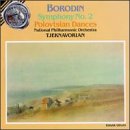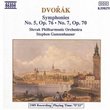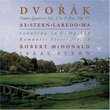| All Artists: Alexander Borodin, Loris Tjeknavorian, National Philharmonic Orchestra Title: Borodin: Symphony No.2/In The Steppes Of Central Asia/Prince Igor Members Wishing: 0 Total Copies: 1 Label: RCA Release Date: 4/5/1991 Genre: Classical Styles: Opera & Classical Vocal, Forms & Genres, Symphonies, Symphonies Number of Discs: 1 SwapaCD Credits: 1 UPC: 090266053520 |
Search - Alexander Borodin, Loris Tjeknavorian, National Philharmonic Orchestra :: Borodin: Symphony No.2/In The Steppes Of Central Asia/Prince Igor
 | Alexander Borodin, Loris Tjeknavorian, National Philharmonic Orchestra Borodin: Symphony No.2/In The Steppes Of Central Asia/Prince Igor Genre: Classical
No Description Available No Track Information Available Media Type: CD Artist: BORODIN,A. Title: SYM 2/PRINCE IGOR Street Release Date: 04/09/1991 ![header=[] body=[This CD is available to be requested as disc only.]](/images/attributes/disc.png?v=15401716) ![header=[] body=[This CD is available to be requested with the disc and back insert.]](/images/attributes/disc_back.png?v=15401716) ![header=[] body=[This CD is available to be requested with the disc and front insert.]](/images/attributes/disc_front.png?v=15401716) ![header=[] body=[This CD is available to be requested with the disc, front and back inserts.]](/images/attributes/disc_front_back.png?v=15401716) |
Larger Image |
CD DetailsSynopsis
Product Description No Description Available No Track Information Available Media Type: CD Artist: BORODIN,A. Title: SYM 2/PRINCE IGOR Street Release Date: 04/09/1991 Similarly Requested CDs
|
CD ReviewsOf Nomads and Gentle Steppe: A Chemist's Russian Resonance Ian Vance | pagosa springs CO. | 03/05/2004 (5 out of 5 stars) "Alexander Borodin (1833-1887) was, by his own account, a "dilettante" when it came to music, with most of his primal energies expended on furthering the science of chemistry and, later in life, his duties as a professor at the academy of medicine in St. Petersburg. Composition was a hobby to Borodin, a means of personal expression found only in his (very) few moments of free time. Still, the Russian was talented enough to gain the notice of several other prominent composers of his era and environment, including Mussorgsky and Rimsky-Korsakov. Together with Balakirev and Cui they formed 'The Mighty Handful,' a group diametrically opposed to the strident rules/form of then-academicians and, more specifically, to the ego-driven histrionics of Richard Wagner. 'The Five', as they were also known, considered themselves champions for spontaneity and 'truth in music.' Borodin, though the least committed of the group, is also widely considered to have been the most talented and sensitive in approach.For potent evidence of Alexander Borodin's compositional gifts, look no further than this assemblage, which contains his 'Symphony no. 2', excerpts from the 'Prince Igor' opera, and 'In the Steppes of Central Asia.' These pieces were conducted by Loris Tjeknavorian and performed by the National Philharmonic Orchestra in 1977. The mastering of the disc is sonically quite rich, and compares favorably with recent, digital-transfer releases. Amidst his professional and private duties, Borodin worked irregularly on Symphony no. 2 for some seven years before completing it. The symphony begins on a stern, authoritative note, exotic and very, very Russian, before segueing into more cheerful terrain with the second movement's jolly, cascading strings. The third movement is a somber, reflective piece, while the concluding fourth... These ears greatly suspect a certain archetypical 'old wild west' jingle, used in both cowpoke movies and "Beef - It's what's for dinner" TV commercials, of ripping its theme from this movement; and in that, of transforming/diluting the music from its proud Russian origins to this eventual 'down home on the range' Texas motif - an ironic symbolic revert-form. Regardless, Symphony no. 2, clocking in at just over twenty-six minutes, is a marvel of shifting mood and variety, and well deserving of its high-ranked status. 'In the Steppes of Central Asia' is perhaps Borodin's most famous piece; I had the fortune to hear it performed last summer by Vadim Gluzman on a 17th century Stradivari. It begins with a simple, understated melody that gradually builds and evolves in idea, if not volume, over the course of the piece, until about halfway through: then the main theme comes crashing in, epic with a capital 'E', peaking the movement. 'Steppes' then expands, undulates and contracts, until resuming its beginning simplicity at the end, tapering off into golden notes. It resonates with the mystery of its namesake, symbolizing the untamed frontier of a Russia long past. Lastly, but certainly *not* least, are the excerpts of Borodin's 'Prince Igor'. Set in the 12th century, the opera chronicles the invasion of the barbaric Polovtsian nomads into southern Russua; specifically, the capture of Prince Igor and his son Vladimir by the Polovtsian leader Khan Konchak, and the Khan's attempts to entertain his prisoners with lavish arrangements and lusty slave-girls a-whirl. The Overture begins slowly but soon erupts with string dynamics; cello and woodwinds accent the quieter passages. The 'March' and 'Dance of the Plovtsian Maidens' have broad-string melody, fast-paced horn-work and a strong rhythmic percussion, exemplifying the rustic folk-tribal character of the nomads. Finally we arrive to the 'Polovtsian Dances,' one of my favorite pieces of classical music, and not just for the fact that I watched the incomparably lovely Yuka Sato win the Hallmark Skating Championship this year with her swan-like ice dancing to it. No, this final choral masterpiece tugs at unseen heartstrings, brings an involuntary tear to the eye - it is a work of beauty, of sublime artistry. At eleven minutes, 'Polovtsian Dances' builds and builds, alternatively roaring with energetic orchestral work and innocent-sounding choral interludes; evocative chanting enhances the rising tension; finally we return to the opening choral as climax, female and male voices resonating together, complimenting the other against blaring horn and cymbal-crash. It's a shame that Borodin's legacy is so sparse, compared to some of his contemporaries; but that which he did compose - handily summarized here in a sort of 'greatest hits' package - rings loud and true in the pantheon of the Romantic Era. And at less that seven dollars, this CD is an incredible bargain to boot. Highest recommendation." Superb collection of Borodin's orchestral pieces Todd Ebert | Long Beach California | 06/29/2003 (5 out of 5 stars) "Anyone interested in discovering the beautiful works of Alexander Borodin should strongly consider buying this recording. Frankly I was shocked to see it listed for [the price], given the quality in all aspects: composer, orchestra, sound quality. "Symphony No. 2", "In the Steppes of Central Asia", and "Prince Igor", all seal Borodin's fate as one of the greatest composers, despite being a professor of chemistry by trade. One can only imagine his legacy had he devoted all his time to music. Well, he left us with some astonishing works for the ears to behold, which are well represented by this cd." Vital, Lusty Performances - Ravishingly Beautiful Music Music Man | Santa Monica, CA USA | 07/07/2005 (5 out of 5 stars) "Pretty much Borodin's greatest hits with terrific sound, bold and robust performances and a great price. It is rare to get the March from Prince Igor complete with the male chorus. It takes a jaded listener to resist the sensuous yearning and unabashed romance of the Symphony #2's 3rd movement. Listen and enjoy!!!"
|

 Track Listings (9) - Disc #1
Track Listings (9) - Disc #1








